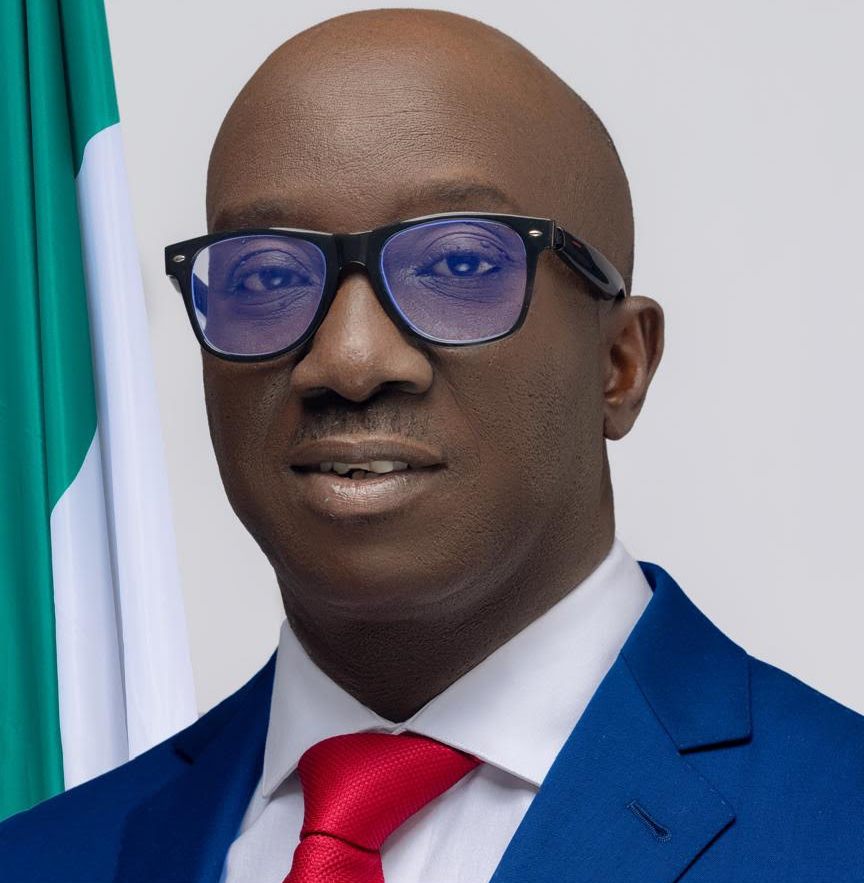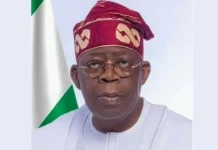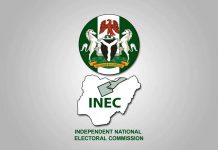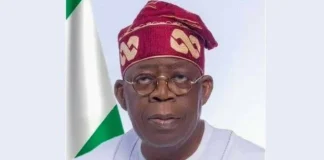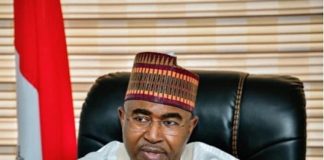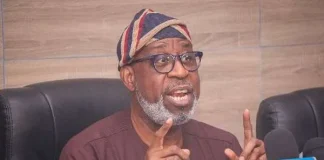🌿 Ruzu Non-Alcoholic Herbal Bitters
Ruzu Non-Alcoholic Herbal Bitters is a natural health supplement specially formulated to:
- ✅ Promote general wellness
- ✅ Detoxify the body
- ✅ Support the treatment of various ailments
Made from a powerful blend of 100% organic and medicinal herbs, Ruzu is completely alcohol-free, making it ideal for:
- 👪 All age groups
- 🌱 Health-conscious individuals
- 🌿 Anyone seeking non-alcoholic herbal remedies
Whether you're looking to boost your vitality, cleanse your system, or support healing the natural way, Ruzu Bitters offers a trusted herbal solution.
The conflict between the elected local government executives and the Edo State administration for control of the state’s 18 LGCs’ economic authority has just reached a new, crucial phase.
This phase comes after a recent national mandate that required the 774 local governments to register special accounts with the Central Bank of Nigeria (CBN) so that funds may be sent directly from the Federation Account to them.
In order to open this dedicated account, the CBN also instructed each local government chairman to attach their certificate of return as elected chairman to the indicated signature. Without this, the account details would not be accepted. In Edo State, this requirement might not be fulfilled because elected council chairmen and their deputies have been suspended for two months.
The crisis started on December 17, 2024, when the governor wrote to the state house of assembly, requesting that the council chairs be suspended following an investigation into third-tier government funds because of alleged institutional failures. This could have been brought on by a bitter fight with addiction and clandestine intrigues that follow the course of history.
The focus on this topic by Governor Monday Okpebholo was allegedly prompted by strong evidence of shortcomings in the third tier of government, which is seen to be an essential part of the declared commitment to delivering dividends for the public good.
In an attempt to help commentators grasp the current situation, the State government is upending the status quo with a daring forecast that signals a sea change.
In 2022, the governor sent a letter to the State House of Assembly, requesting that elected chairmen and their deputies be removed through suspension in accordance with Section 10, sub-section (1) of the Edo State Local Government Law 2000 as modified. This resulted in wild dogs sunbathing with a fresh perspective.
During the governor’s letter, the State House of Assembly, which is led by the Peoples Democratic Party (PDP), unexpectedly overturned the law’s section and fired a political shot that changed Edo Local Government Administration’s daily operations in an effort to clean up the allegedly depressing legacy left by the previous administration of Governor Godwin Obaseki.
However, on December 17, 2024, the House of Assembly applied for relief under Section 10 (20) of the same law, which addresses the Legislative Arm’s authority to suspend Local Government chairmen. As a result, the 18 Local Government chairmen and their Deputies were suspended for two months for alleged gross misconduct and insubordination.
Following the slamming of the legislators’ voices against the suspension, the governor got his way. As the petition was discussed in plenary, different interest groups started to feel threatened; this is a moment that will undoubtedly be hard to forget in Edo State’s democratic journey.
It is noteworthy that during Obaseki’s tenure as governor of the state, the same House of Assembly, presided over by current Speaker Blessing Agbebaku, passed the Edo State Local Government Law in 2000 (2022 as amended).
Governor Okpebholo called the Council chairmen to a meeting in Government House, Benin City, prior to the Assembly’s resolution. Through State Deputy Governor Dennis Idahosa, he ordered them to submit their financial accounts and Council receipts to the government.
This daring journey summarized the terms of certain local government council chairs and their deputies after they were removed from office by their respective legislatures during times of strife.
Stakeholders wonder if the governor’s goal is to strengthen his hold on power and break apart alliances formed by leaders of the state’s major opposition party, the PDP, with the targets of the various LGCs.
Once more, there are worries that the use of subtle pressure and power by political actors is not only intended to postpone the discovery of the truth but also poses a threat to the rule of law with regard to accountability.
Does the House of Assembly’s reliance on the Local Government Law contradict with the recently modified 1999 Constitution of Nigeria?
Did the governor have the constitutional authority to interfere in local government issues as we have witnessed it in Edo, and if so, why did he ask the different administrators of the Local Government Councils to open their records for inspection?
Answers to some of these questions are desperately needed. These developing situations have created their own difficulties, since some Council employees were unable to collect their 13th month’s wage from their Internally Generated Revenue (IGR) at the end of 2024, which was allowed by the State government.
There are many who contend that every day, grassroots governance slows down due to the ongoing family conflicts caused by a lack of clear political boundaries between the hunter and the hunted.
Some people, who are thought to be political thugs connected to the government, violently eject suspended chairmen who tried to retake their seats after receiving a judicial reprieve, while their supporters and translators, including party members, keep spreading false information about griots on social media.
Read Also: EFCC Revokes Arrest Warrant Against Mercy Chinwo’s Manager, Mr. Eezee
In order to rectify some abnormalities, Governor Okpebholo feels that harsh measures must be taken. He also asks for understanding from those who are impacted, either directly or indirectly, by his effort to gain support for his strong stance.
Because of this, he decides to disregard distractions while also taking into account the reasonable criticism that is aimed at him.
In a similar spirit, the state’s civil society organizations tried to fulfill the volunteer watchdog role of Ombudsman, which is meant to steer the state toward peace, and urged the governor to reinstate the suspended local government chairmen.
The governor was urged to honor President Bola Tinubu’s request, as he recently suggested that Nigerian governors work with the 774 Local Government Administration to promote development at the local level.
Most council chairmen, who have been falsely or correctly accused of embezzling public monies, ignore the alleged governor’s order, while others believe that “the Governor” is playing a prank on them.
Furthermore, the escalating crisis is thought to have been caused by a solidarity visit two weeks ago by some suspended Council chairmen to Asue Ighodalo, the Peoples Democratic Party candidate for the September 21, 2024, Edo State governorship election. This visit was likely intended to cause political upheaval.
Despite being labeled opportunistic by the APC, the meeting gave the authorities the opportunity to question the constitutionality and consider their legal alternatives.
Governor Okpebholo would concur that the fog of pretense has prevented them from seeing the obvious: on a balanced political chess board, financial autonomy for the third tier of government does not imply or ensure a preference for financial irresponsibility by transactional leaders.
The majority of the troubled chairmen have, regrettably, been removed from office by their respective councilors and the acting chairmen who were chosen to replace them.
According to some of them who have managed to speak up, the Governor and the State Assembly are not authorized to remove duly elected Local Government officials from their positions in the Councils.
To reshape the new order, Tony Aziegbemi, the irate chairman of the Edo PDP Caretaker Committee, and other stakeholders are expressing their trust and solidarity with those who are being impeached.
During a press briefing, Aziegbemi expressed his belief that fear will not stop anyone from seeking justice by reversing the other telling indictment against the removal of elected chairmen, especially in the Oredo Local Government Council, where Dr. Tom Obaseki’s impeachment was difficult to defeat after the majority of the LGA’s councilors initially adopted an unyielding stance.
The chairman of the State PDP caretaker committee also blasted the government, which is led by the All Progressives Congress, for its conscious efforts to capture the hearts of Council officials in the never-ending wave of misfortune.
Regarding the invitation from the Economic and Financial Crimes Commission (EFCC) to some of the suspended Council executives regarding the finances of Local Government Councils, Aziegbemi remained silent.
He said, “What you see in Nollywood movies is what is happening in Edo State.” In the first place, it must be made apparent that the Governor’s letter to the House of Assembly is unlawful.
“That letter shouldn’t have been written at the Governor’s request,” he declared.
“What was he up to? He posed a rhetorical query.
“When he wrote that letter, the Chief Judge of the State had ruled that the Supreme Court’s decision, which gave the Local Government Councils financial autonomy, had revoked and annulled Section 10, sub-section (1) of the 2000 Edo State Local Government Law (2022 as amended).”
The PDP Chairman further charged that the Assembly’s leadership was inexperienced in giving in to the whims and fancies of the executive branch.
At the Edo Local Government Administration, he also believes that Governor Okpebholo is responsible for the contradictory actions that undermine democracy.
He questioned the Governor’s decision to disregard a ruling by Justice Efe Ikpomwonba of the Edo High Court, which established that the State House of Assembly’s resolution suspending the Council chairmen was invalid.
However, the assertions made by the PDP chairman were tempered by Barrister Andrew Adaze Emwanta, the State’s former Commissioner for Communication and Orientation during Goodwin Obaseki’s government.
Governor Okpebholo’s current ally, Emwanta, acknowledged in an interview with this correspondent that “we operate a Constitutional democracy in Nigeria.” And in a sense, the governor’s actions were directed.
The governor acted in accordance with the second section of the 1999 Constitution as modified. The Constitution’s first section, of course, guarantees the term of the democratically elected Local Government Councils.
Additionally, the second section states that the House of Assembly, on behalf of the State Government, must guarantee the existence of local government and enact legislation that includes provisions for its composition, organization, funding, and establishment.
“The Edo State Local Government Law was passed by the Edo State House of Assembly in 2000 in accordance with those provisions of the 1999 Constitution,” he said.
He further mentioned Edo State Local Government Law section 20 sub-part (e), which permits “a Governor in consultation with the House of Assembly to suspend an erring Local Government chairman for two months.”
In other words, for a maximum of two months. For the duration of the Local Government Council, when the Governor is required by sub-section (c) of that law to establish an inquiry, the elected Local Government House Leader serves as the acting chairman in lieu of the chairman or a chairperson and his Vice (Deputy).
“And the Governor of Edo State followed these procedures as stipulated by the law,” said the constitutional lawyer and law professor who takes satisfaction in being one of the talent-nurture incubators in Governor Okpebholo’s government, which prioritizes growth and improved prosperity.
Another viewpoint on the topic has come from Hon. Damian Lawani, Chairman of the Edo State Local Government Service Commission.
Using the need for accountability and transparency as justification, Lawani, a former Edo State Commissioner and member of the State House of Assembly, backed the suspension of the 18 Local Govt Council Chairmen. Lawani stressed that no one can keep the Edo State Government hostage, but he also pointed out that the suspended chairmen did not respond to inquiries, especially when it came to suspected financial mismanagement.
Lawani disclosed that the Governor first requested a family meeting with the chairmen. As a result, the Governor decided to involve the State Assembly and EFCC after the chairmen refused to accept the cordial request and take the required steps.
Lawani emphasized that the suspension was both lawful and constitutional, stating that parliamentary leaders filling in as acting chairs is a constitutional provision and that the law forbids power vacuums. According to the chairman of the local government Service Commission, the governor took action in response to reports from the State Accountant-General, who accused the 18 chairmen of the Local Government Councils of wasting approximately 12 billion naira in 15 months on a phony ‘environmental security fund’ and receiving 83 billion in allocations in the same period without any real progress.
According to Lawani, the Chairmen were suspended by the State House of Assembly rather than the Governor.
The Federal High Court has ordered the parties to the dispute to maintain the status quo while the crisis continues, and it has imposed an injunction on Edo Local Councils’ accounts until the aggrieved suspended Local Government Council chairmen have decided the substantive suit.
In addition to institutions that receive funding from local government allocations, the law imposed on the Councils’ accounts by the court order has had far-reaching effects on local government employees and pensioners. As a result, they will not receive their December 2024 salaries and other benefits that are due from local government funds.
For the Supreme Court to ultimately decide and provide a long-term solution to the Edo State dilemma, it is now up to the constitutional interpreter. Edo State’s good citizens must endure the suspension of federally allocated cash till further notice.
How a Nigerian Millionaire Makes Money with Bitcoin Without Purchasing It

